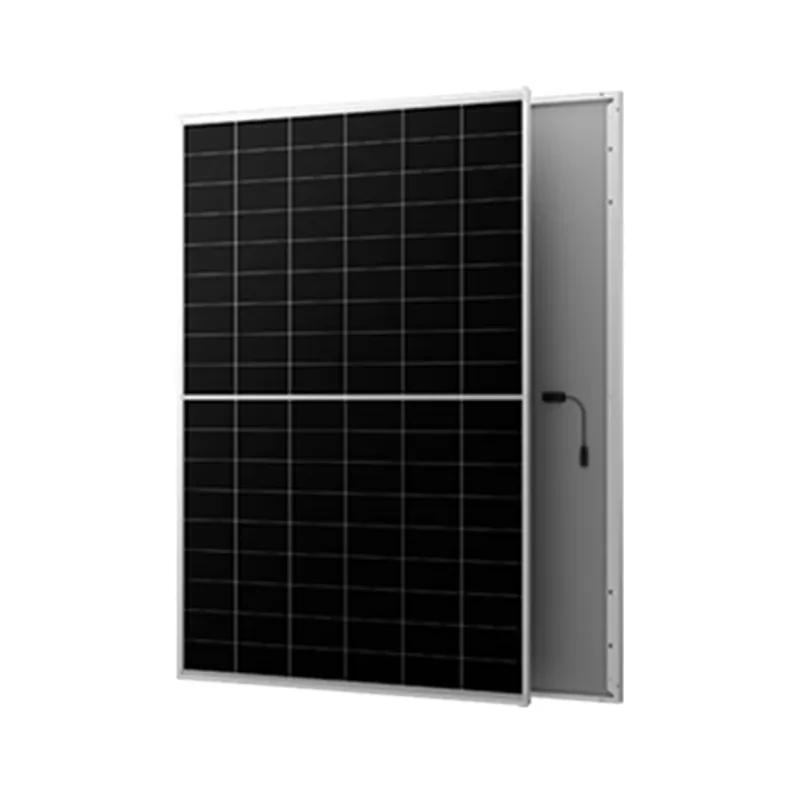solar electric system
The Rise of Solar Electric Systems Harnessing the Power of the Sun
In recent years, solar electric systems have emerged as one of the most promising and sustainable solutions for meeting the world's growing energy needs. As concerns over climate change intensify and fossil fuel resources dwindle, the shift towards renewable energy sources, particularly solar power, has become not only necessary but also increasingly feasible. This article explores the benefits, components, and future of solar electric systems, highlighting their importance in a sustainable energy landscape.
What is a Solar Electric System?
A solar electric system, often referred to as a photovoltaic (PV) system, converts sunlight directly into electricity. This process relies on photovoltaic cells, which are typically made of silicon, a material that exhibits the photovoltaic effect. When sunlight strikes these cells, it excites electrons, creating an electric current. This electricity can be used immediately, stored in batteries for later use, or fed into the electrical grid.
Components of Solar Electric Systems
Solar electric systems consist of several key components
1. Solar Panels These are the most recognizable elements of solar systems and are made up of many photovoltaic cells. They come in various sizes and efficiencies, and the choice of panels can significantly influence the overall energy production of the system.
2. Inverters Since solar panels produce direct current (DC), inverters are essential for converting this into alternating current (AC), which is the form of electricity used in most homes and businesses.
3. Mounting Systems Solar panels need to be securely mounted either on rooftops or on the ground. The mounting system must be sturdy and capable of withstanding weather conditions, while also ensuring optimal angles for sun exposure.
5. Charge Controllers These devices regulate the flow of power to and from the batteries, preventing overcharging and ensuring optimal battery health.
Benefits of Solar Electric Systems
solar electric system

The adoption of solar electric systems offers numerous advantages
- Environmental Impact Solar energy is clean and renewable, producing no harmful emissions during operation. By decreasing reliance on fossil fuels, solar systems help to mitigate climate change and reduce air pollution.
- Energy Independence By generating their own electricity, homeowners and businesses can reduce their dependence on grid power, which is especially beneficial in areas prone to power outages or where energy costs are high.
- Economic Savings While the initial investment for solar systems can be significant, the long-term savings on electricity bills can be substantial. Many regions also offer incentives, rebates, or tax credits to offset installation costs.
- Job Creation The growing solar industry has led to the creation of numerous job opportunities, from manufacturing to installation and maintenance, contributing positively to local economies.
Challenges and Considerations
Despite the many benefits, solar electric systems face challenges. The initial cost of installation can be a barrier for some, although prices have been steadily declining. Additionally, the efficiency of solar panels can be affected by weather conditions, and the intermittent nature of sunlight means that a reliable energy storage solution is crucial.
Moreover, there are concerns about land use for large solar farms and the environmental impact of manufacturing solar panels. However, advancements in technology and recycling processes are continuously addressing these issues.
The Future of Solar Electric Systems
The future of solar electric systems appears bright. With ongoing technological advancements, such as higher-efficiency solar cells and innovative energy storage solutions, the role of solar power in the global energy mix is set to expand. Policymakers and businesses are increasingly recognizing the importance of investing in renewable energy infrastructures to ensure a sustainable energy future.
As awareness of climate change grows and the demand for clean energy increases, solar electric systems will undoubtedly play a pivotal role in transforming our energy landscape. By harnessing the power of the sun, we can move towards a more sustainable and resilient world, one solar panel at a time.
-
Understanding the Advantages of Solar String Inverters for Your Energy SystemNewsApr.29,2025
-
Choosing the Right PV Inverter: A Comprehensive GuideNewsApr.29,2025
-
The Future of Solar Power: Exploring Bifacial Solar PanelsNewsApr.29,2025
-
The Complete Guide to Solar Panels: Efficiency, Cost, And InstallationNewsApr.29,2025
-
The Best Options for Efficiency and Cost-EffectivenessNewsApr.29,2025
-
Harnessing the Power of Off-Grid Solar Inverters for Energy IndependenceNewsApr.29,2025







